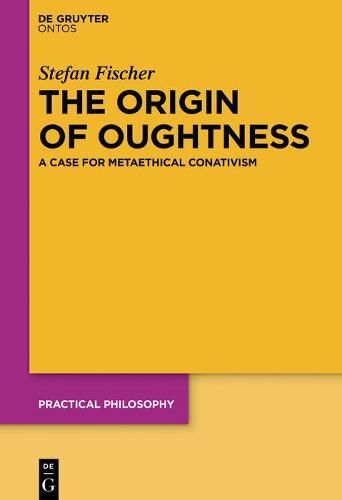Readings Newsletter
Become a Readings Member to make your shopping experience even easier.
Sign in or sign up for free!
You’re not far away from qualifying for FREE standard shipping within Australia
You’ve qualified for FREE standard shipping within Australia
The cart is loading…






This title is printed to order. This book may have been self-published. If so, we cannot guarantee the quality of the content. In the main most books will have gone through the editing process however some may not. We therefore suggest that you be aware of this before ordering this book. If in doubt check either the author or publisher’s details as we are unable to accept any returns unless they are faulty. Please contact us if you have any questions.
How come we ought to do things? Current metanormative debates often suffer from the fact that authors implicitly use adequacy conditions not shared by their opponents. This leads to an unsatisfying dialectical gridlock (Chang): One author accuses her opponents of not being able to account for stuff she judges essential, but the opponents do not think this to be a major flaw. In an attempt to meet the problem of gridlock head-on, the current investigation approaches oughtness differently.
I start with the introduction of a grounding framework for thinking about oughtness that allows a lucid presentation of the views on the market. It soon becomes clear that one necessary part of any plausible assessment of accounts of oughtness is a discussion of their adequacy conditions. I continue with a detailed evaluation of four different accounts, as presented by Halbig (2007), Schroeder (2007), Stemmer (2006), and Scanlon (2014). My main result is that desire-based or Humean theories of oughtness are more plausible because desire-independent accounts fail to explain something crucial: the for-me character of oughtness. Based on the insights gathered thus far, I then develop a new Humean theory - metaethical conativism - and defend it against some historically influential objections.
$9.00 standard shipping within Australia
FREE standard shipping within Australia for orders over $100.00
Express & International shipping calculated at checkout
This title is printed to order. This book may have been self-published. If so, we cannot guarantee the quality of the content. In the main most books will have gone through the editing process however some may not. We therefore suggest that you be aware of this before ordering this book. If in doubt check either the author or publisher’s details as we are unable to accept any returns unless they are faulty. Please contact us if you have any questions.
How come we ought to do things? Current metanormative debates often suffer from the fact that authors implicitly use adequacy conditions not shared by their opponents. This leads to an unsatisfying dialectical gridlock (Chang): One author accuses her opponents of not being able to account for stuff she judges essential, but the opponents do not think this to be a major flaw. In an attempt to meet the problem of gridlock head-on, the current investigation approaches oughtness differently.
I start with the introduction of a grounding framework for thinking about oughtness that allows a lucid presentation of the views on the market. It soon becomes clear that one necessary part of any plausible assessment of accounts of oughtness is a discussion of their adequacy conditions. I continue with a detailed evaluation of four different accounts, as presented by Halbig (2007), Schroeder (2007), Stemmer (2006), and Scanlon (2014). My main result is that desire-based or Humean theories of oughtness are more plausible because desire-independent accounts fail to explain something crucial: the for-me character of oughtness. Based on the insights gathered thus far, I then develop a new Humean theory - metaethical conativism - and defend it against some historically influential objections.